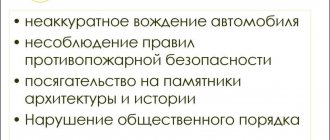All material and intangible benefits and responsibilities passed on by inheritance are combined into one concept - the inheritance mass. Its structure and features are described in Article 1112 of the Civil Code of the Russian Federation. We will try to provide the reader with a clear understanding of the essence of this concept. You will learn what is included in the inheritance estate, how it is formed and what the tax contributions are for the acquired inheritance.
Dear readers! To get a free consultation from a lawyer on our portal, write your question in the online consultant pop-up window on the right, or call ext. 801 - free call within the Russian Federation. No queues or spending money - get comprehensive information on your problem within 5 minutes. With the help of an expert, you will understand the issue much faster, trust our experience! It's free.
What is hereditary mass: basic concepts
In professional legal literature and in legislative acts, this is everything that is transferred to the heirs. The general composition of the inheritance must be taken into account and assessed in order to understand how much money is transferred from the deceased. Understanding allows you to correctly and accurately divide it between applicants, preserving the interests of all participants in the process. The main requirement is that the inheritance includes property belonging to the testator.
The third part of the Civil Code of the Russian Federation regulates the procedure for receiving property values after the death of the owner. Here the main articles are 1110 and 1111, which provide the definition and list the grounds. What is included in the inheritance is stipulated in Article 1112. It also spells out what cannot be re-registered. You should not identify the inheritance mass only with things and real estate.
This includes everything that has material value. The connection between the object and the subject is required. The peculiarity is that the inheritance also includes debt obligations, which must be taken into account before the inheritance case is completed. Property encumbered with debts can be abandoned. Then creditors have no right to demand repayment of debts that are in no way connected with the person who refused. It will not be possible to accept benefits by renouncing debt.
What does the hereditary mass consist of?
In order to classify all objects of inheritance included in the inheritance, the mass is divided into 3 categories according to the following criteria:
- Things that are such. These are personal belongings, real estate, any types of vehicles. The inheritance estate also covers valuables and cash.
- Any property right documented. The inheritance includes shares owned by the testator, shares in residential complexes under construction, and a block of shares in enterprises. It is these objects that are often associated with debts, because their possession imposes not only rights, but also obligations.
- Intangible property. The composition of the hereditary mass is replenished with the results of the intellectual work of the deceased, as well as the works of art created by him. It is possible to receive funds from a patent obtained during life.
Depending on what the inheritance mass is in terms of the profitability of the acquisition, objects are divided into assets and liabilities. Comparing the price parameters that they have allows us to determine the feasibility of completing the inheritance case and accepting the property as a whole.
Liabilities
The document establishing the need to accept the passive part of the inheritance is the same Civil Code of the Russian Federation. In particular, the legislative act states what is included in the composition, including the debt relationships of the testator. Thus, the successor is obliged to make payments on the following items:
- utility bills;
- bank loan contributions;
- other loans and advances;
- compensation for damage caused.
The full list is extensive, and those wishing to find out what is included in the estate of debts should seek a free consultation with a lawyer. At the same time, there is a category of debts that is not included in the inheritance volume. Thus, the estate will not be affected by unpaid alimony. After the death of the subject, the obligation to support the child after divorce is canceled.
It’s a different matter if he didn’t pay his utility bills. When accepting the estate as part of an inheritance case, you will have to pay off the arrears, since it is included in the inheritance along with the accepted housing. According to Russian laws, you cannot get an apartment without paying off your debts on utility bills. Rosreestr will not put a mark on the change of owner, and the property cannot be sold, exchanged, donated, or included in the inheritance estate for one’s descendants.
Assets
Anything tangible that has a market value is an asset. That is, this is something that can be sold. In this context, the composition of the hereditary mass includes movable and immovable property. It should be noted that in inheritance law, assets are not the objects that allow you to earn money. At least, not only them. Jewelry, personal belongings, furniture and furnishings are also included in this category of wealth inherited after the death of the owner.
A special subclass of hereditary (testamentary) estate is deposits, securities, shares. It is not always possible to evaluate them at a specific moment, but these are objects that provide the opportunity to earn money, and therefore fall into this category of inherited property. Equity participation assumes that parts of investments that do not belong to the deceased during his lifetime are not included in the transferred inheritance. The enterprise, the founder of which was the testator, is transferred to the heirs in full.
Some objects from the asset category are subject to taxes upon re-registration. Hereditary ownership may involve the presence of several successors. To avoid conflicts, redemption of a share of the hereditary mass is allowed. To do this, you need to pay the competitor the cash equivalent. This means that valuation is an obligatory stage of hereditary notary work. The main thing is that the claims are justified.
Judicial practice related to inheritance
Judicial practice on inheritance issues is rich and the archives are updated with new cases every day. A full list of questions can be seen on the official websites of the courts when registering for them. The list is also constantly updated by reference and legal systems, but they provide all information only on a paid basis.
The decisions made by the court are varied, often the case goes through the entire branch of the judicial system before completion. The issue of inheritance is not simple and contains many subtleties and complexities.
Often, asserting their rights requires heirs to go to court. But this is the only way to prove that you are right and receive official confirmation of your rights to inheritance.
Based on what conditions is it compiled?
The main requirement of the law is actual possession. For some things this is enough. But there is a category of objects included in the inheritance volume for which documentary evidence is required. So, if the estate includes a privatized apartment, privatization papers are provided, which indicate the conditions under which the testator is the owner.
When faced with registration of property rights, you need to know what is not included in the inheritance. The absence of grounds allows you to exclude property from the inheritance mass, regardless of its type. At the same time, the inheritance has a number of mandatory requirements:
- The testator is the owner.
- The heir substantiated the legality of the claims.
- The testator actually owned the valuables.
- There is documentary evidence.
When the inheritance process has already been activated by the notary, and part of the material wealth is not included in the estate, it is necessary to file a claim in court at the place where the case was opened. In this case, a specific list of possible material assets is taken into account.
Objects included in
The estate is divided into movable and immovable property. The governing law is Art. 130 Civil Code of the Russian Federation. The last category includes everything that is in the ground and on its surface. Inherited real estate is apartments, cottages, land plots, any buildings. If the construction is not completed, the unfinished building is also transferred by inheritance, just like the completed one.
Movable mass is a comprehensive concept that includes not only motor vehicles. Everything that can be moved without special means is included in this segment of inheritance by law or by will. Banknotes, banknotes, and securities are also part of this category of hereditary objects according to the Civil Code of the Russian Federation.
However, real estate is generally considered to be large vessels that are used both on the territory of the Russian Federation and abroad. The main distinguishing feature is the need for registration. On the other hand, vehicles are also subject to registration, but they are classified as movables and are also included in the estate transferred by inheritance.
Property
Anything can be added to the inheritance. The main characteristic of property is tangibility. This includes both movable and immovable objects. Personal belongings, furniture, interior items, and jewelry are bequeathed. Money, even if it is in accounts, is hereditary property and is added to the estate on the basis of property. Registration requirements do not always work.
In most cases, expensive items must be registered with government agencies, this could be:
- Immovable mass . Confirmation of ownership is a mark in Rosreestr and the presence of an appropriate certificate.
- Movable mass . Cars are registered with the traffic police and receive a title, which states who the owner is.
When considering what property requires registration with government agencies, it should be mentioned that shares and bills of exchange are not property assets, since in this case we are talking about the transfer of inheritance rights.
Property rights
The procedure for redistribution and transfer of inheritance in favor of successors involves 2 options:
- Based on a will . This document regulates the required volumes, establishes successors, and makes special orders in case of special circumstances. Inheritance rights are exercised by specific persons indicated in the text.
- In law . The order formed on the basis of close relationship with the testator is taken into account. There are a total of 8 queues, each of which enjoys inheritance rights if previous applicants have died or refused to join.
There may be a conflict of interests when several competitors lay claim to the deceased’s inheritance. In hereditary struggle, any methods are used:
- invalidation of the will;
- transfer of the heir to the category of unworthy;
- challenging the legality of the formation of the mass;
- restoration of the terms of the inheritance case;
- other legal means.
To counter this, engage a probate lawyer who, based on a power of attorney, will represent your interests in disputes.
Property obligations
The fact that such obligations are accepted along with the material mass should not be forgotten. When the successor expresses his readiness to take possession of all material goods, based on the inheritance rules of the law, he agrees to pay the debts of the testator. It is believed that if there is more than one heir, then each claimant receives equal shares if the division is made according to the law. Along with values, debt obligations are also shared.
The inheritance includes responsibility, which involves taking care of the object of the inheritance transaction. Part of the estate due to the heir will require material costs, if it is a car or an apartment. You will have to pay transport tax and utility bills. Evasion leads to the inability to operate the vehicle, and the inherited living space can be completely lost.
Loans will also have to be repaid. At the same time, it is possible to avoid paying fines and penalties for late payment. The inheritance is attached to the obligation to repay the loan. Other claims of creditors are disputed in court as part of inheritance proceedings. The latter is necessary if the successor did not know about the debt at the time of receiving the inheritance certificate.
Is it possible to refuse part of the inheritance?
The decision is made personally. The law does not impose any prohibitions on issuing a waiver. It is enough to submit an application to a notary or a petition in court. What constitutes an inheritance is generally known. It is also clear which objects will require additional costs. Give up unprofitable things in favor of a claimant who is willing to accept the inheritance consequences.
Refusal without specifying a successor will result in the item being returned to the mass, which will be divided among all applicants. By transferring property to a specific person, you decide who will become the owner of the listed things that are excluded from the inheritance. The paper proving that you will not have to accept the renounced share is a certificate of inheritance rights or a court ruling.
There is one peculiarity. It will not be possible to separate debts and obtain a “purified” mass. If the debt relates to a specific item, in order to avoid costs, you will have to abandon it completely. The right not to pay is exercised only on the basis of a court order. A lawsuit is filed, and if the creditors' claims fall into the wrongful category, the judge will issue a verdict accordingly.
Is it possible to include non-privatized housing?
Residential premises that were not privatized by the testator remain the property of the state
At the same time, it doesn’t matter how long a person lived in it. Ownership must be registered with the Rosreestr authorities
Therefore, such housing is not included in the inherited property. However, it is possible to include a non-privatized apartment in the estate if the testator has already submitted an application for privatization during his lifetime, received approval, but did not have time to complete the matter.
In this case, it is necessary to go to court to resolve the issue of continued privatization of real estate by the heirs.
The Civil Code establishes a list of property, rights and obligations that are excluded from the inheritance mass.
It includes the following types of material and intellectual property:
- Weapon. Regardless of the category of weapons (smooth-bore, rifled, cold-bore), they can be owned by people who have received certificates from a narcologist and a psychiatrist, permission from the internal affairs bodies, and who have prepared a place for its storage. Until such conditions are created, the property is confiscated.
- Associated with the personality of the deceased. Possible profits or moral damage from future use of the works and scientific works of the testator are not taken into account.
- Payments by court decision to individuals. Thus, a third party does not have the right to claim alimony from the heirs after the death of the owner.
- Real estate that has not been privatized. Such apartments are the property of the state, and the deceased lived there under a social tenancy agreement.
- Jointly acquired property. According to the law, this includes real estate and all the things of the spouses located in it.
- State awards. Orders, medals and memorial signs are transferred by law to close relatives, and in their absence they are handed over to a state fund.
- Vehicles used by proxy.
What is not included in the inheritance?
People often do not take into account that weapons are not included in the carry-over mass, since special permits are required. Inherited items cannot be illegal items, the storage of which is prohibited by current legislation. There is also a ban on things that are in exclusive connection with the testator. Heirs cannot claim, for example, the gold teeth of the deceased.
If the testator has determined that part of the material wealth is transferred by inheritance, for example, to a charitable foundation, it is excluded from the mass intended for division between relatives and other participants in a unilateral transaction. The will is free of charge, which allows you to avoid paying income tax upon re-registration.
The marriage contract becomes an obstacle to the implementation of inheritance claims. If it is stipulated that after the death of a spouse, his share is not considered jointly acquired, then it is removed from the estate. The only limitation is the presence of obligatory heirs, which include young children and adolescents who have not reached the age of majority, as well as disabled dependents.
Personal non-property rights
The main prohibitions relate to copyrights transmitted by inheritance. Authorship remains assigned to the deceased even after death. It will not be possible to assign it if the products of mental labor are recorded in the patent office. The same goes for works of art. But the right to receive profit for the use of intangible assets has the right. This already falls under the category of property rights, since profit is expected.
You can use the name of a deceased author. Authorship is an indivisible mass, which must be taken into account when carrying out inheritance activities within the framework of notarial affairs. One heir can become the successor. The results of mental work appropriated illegally cannot be included in the distributed mass. Such a transaction is considered invalid.
Indivisibility does not mean hardship for claimants. All participants in the inheritance procedure use the name of the ancestor on an equal basis. Such objects are removed from the material mass because it is impossible to estimate their value. Chapter 63 of the Civil Code of the Russian Federation establishes a sequence for those included in the inheritance by date of birth from eldest to youngest. Exceptions are determined by the testamentary documentation.
Property that is not the property of the testator
Items that rightfully belong to the testator may be included in the inherited estate. Otherwise, the expression of will is deprived of legal force and is recognized as void or invalid in terms of the execution of posthumous orders. The already received mass is revoked and transferred to the rightful claimants on the basis of a new hereditary process of division.
To document invalidity, do the following:
- File a claim by pre-paying the state fee.
- Please include proof and receipt of payment of the fee.
- Receive court decisions and monitor compliance with the specified conditions.
They always ask about which court to go to. To the one that is located in the same area and city as the notary conducting the inheritance case and incorrectly distributing the mass of the inheritance. The general limitation period is three years from the date of adoption of the disputed mass. They are restored by the judge if there are sufficient, objective, compelling reasons. All circumstances that caused the absence are documented.
Property rights and obligations of the testator
Making a will is a voluntary desire. The testator is obliged to indicate in the text the successor, his details and list what is included in the inheritance mass provided for each applicant. Also, the testator is obliged to transfer only his own property. Temporary encumbrance is not an obstacle. But all this is possible only when the owner is one of the legally capable citizens. He is given the right:
- Determine legal successors.
- Establish shares of the total mass.
- Set conditions for receipt.
- Provide for various cases.
The only thing that is necessary is to draw up a will in the presence of a notary and two witnesses. It is allowed to maintain secrecy until the day the inheritance case is opened. Notarization is required. It is also allowed to formalize a refusal of the inheritance without specifying the reasons for such a decision. But it is prohibited to disinherit compulsory successors, who in any case will receive part of the inherited mass in accordance with the law.
A previously executed will is canceled at the will of the testator. To do this, a refusal statement or a new expression of will is provided, which automatically invalidates documents drawn up before. In addition to the items belonging to the will, rights of claim, securities, shares of the founding fund, etc. are transferred. All this is accepted by the heir, including the debt obligations of the will-maker.
Specific types of property transferred by inheritance
At the moment, lawyers identify a special group of inheritance mass, which includes property, which is often very difficult to obtain, but it does not belong to the category of prohibited objects.
Such an inheritance is considered specific, so to make a decision it is necessary to contact the courts.
It is there that the inherited person will be helped and told in detail whether this property can be included in the inheritance estate, what documents are needed for registration and how long it will take to accomplish this.
Among the special types are:
- means of transportation that were provided on a preferential basis;
- initial payments for garages, dachas, apartments and other objects;
- apartments that have not gone through the privatization process;
- property contributions for all kinds of real estate;
- various state awards received in various ways.
In case of illness or any preferential categories, during his lifetime the testator can receive vehicles free of charge or for a minimal fee.
Such objects are allowed to be included in the inheritance. Most often, such cars and other means of transportation go to a deceased person due to disability.
Good to know! Regarding share contributions, it is impossible to immediately say for sure whether they can be donated. If before death the testator has fully paid for the housing or other share, then by law it can pass in full into the hands of the heirs. In the event that payment has not been fully completed, the heirs receive only that share of the share that was paid.
How is the hereditary mass formed?
Inheritance proceedings are initiated at the request of legal successors. The text indicates the property claimed by the applicant. The personal belongings of the deceased are automatically included in the total mass. If necessary, material wealth is increased by the list of items owned during life. For this purpose, documents confirming this fact are provided. Recognition of the owner's rights in court is allowed.
The claim specifies a list of values to be included in the inheritance register. An increase in mass leads to an extension of the period allotted for carrying out measures in relation to the inheritance, including:
- Determining the true owner.
- Definition of debt obligations.
- Search for compulsory heirs.
- Inclusion in the mass of other values.
- Issuance of inheritance certificate.
The declared objects are added to the total mass by a notary or in court. A change in the amount of the inheritance leads to proportional changes in the shares.
Controversy arises when people try to introduce insurance to the masses. There is a contradiction here. On the one hand, this is the testator’s money, which allows it to be distributed during the inheritance process. On the other hand, the mass is formed from material assets belonging to the testator during his lifetime. And insurance payments are made when he dies. A lawyer will answer this question after studying the inheritance documentation and the conditions specified in the policy.
Included property
It can be seen that the mass is formed by material objects that represent value in the form of monetary value. A prerequisite is the presence of actual and documentary property indicating the right of ownership when the things were the property of the testator. The same applies to intangible objects included in the inheritance mass.
It is important to determine when the property became owned by the testator. If this happened before the date entered on the death certificate, there is no problem. Otherwise, there is no legal inheritance basis for receiving an inheritance. Replenishment of the estate is allowed until the deadline for accepting the inheritance has expired - six months from the date of opening. The starting point is the date of death, stated in the medical report or in the certificate of death. If there are no instructions, the day the resolution was issued is taken.
A list of the entire mass is given in the application. This is necessary information for the notary and judges if the distribution of the inheritance volume is carried out with the involvement of the judiciary. Evaluation is highly desirable. When comparing the shares of competitors, the market value of the assets formed at the time of initiation of the inheritance distribution process is taken into account.
What should be in the inventory?
When attaching the register of inherited estate, it is necessary to draw up the document correctly. To be valid, it must be dated and signed by the applicant. In addition to the list, the price of each item and the total value of the mass to be inherited are indicated. These indicators are calculated at the same time as the hereditary mass is determined.
It is advisable to indicate the legal basis. Then the paper is more informative. Provide the details of the document confirming the existence of sufficient grounds for ownership. Information about the evaluation commission that evaluates the entire mass or a separate item is also written down. The main thing is that the paper fully displays data about the inheritance mass and allows it to be distributed if necessary.
You should not indicate in the statement items and amounts, the inclusion of which is contrary to current legislation. There are certain cases where you cannot claim money, such as insurance. This refers to amounts intended for payments under life and health insurance policies. Social insurance is also not taken into account. Items whose ownership has not been established are not included in the inventory until an act of recognition of the owner is received.
Is it possible to challenge the testator's decision?
A challenge mechanism exists and is activated when there is sufficient justification for the claims. The expression of will is considered void if the registration procedure was carried out with gross violations. If the rights to inheritance are violated, it is allowed to file a lawsuit to cancel the lifetime dispositions to establish justice and legality.
Such a step is possible if the applicant is able to substantiate the legality of the requirements. This is also practiced when the testator was incapacitated at the time of registration, even if the condition was temporary. Recognition of the heir specified in the text of the will as unworthy is the reason for his exclusion from the procedure for dividing property. It is returned to the mass to be distributed among the remaining applicants.
The judge will accept the absence of notarization or witnesses as circumstances allowing the declaration of will to be invalid. The same happens if the testator did not draw up the document with his own hand. Coercion, psychological pressure, blackmail and threats are unacceptable. If such facts are discovered during the trial, the inheritance documentation will be canceled and the property will again be added to the estate.
Information that should be in the claim
In order for a claim to be accepted for consideration, it is necessary to write a complaint that has all the required attributes. Indicated:
- date of compilation and city;
- name of the court;
- details and contact details of the plaintiff;
- information about the defendant (if any);
- document's name;
- applicant's signature with transcript.
The content of the text also influences in a certain way. It is necessary to set out the entire background story. They write when the will was drawn up, who its author is, and indicate the details of the person handling the inheritance matter. A description of the mass disputed in the trial is also provided. After this, arguments are written down, which are supported by documents. Not only are they stated, but copies of evidentiary papers are attached. The register is being written.
The requirements are based on specific articles of current legislation, and for many this is the most difficult thing. A specialized lawyer will easily select points that prove the legitimacy of the requirements. Otherwise, everything will have to be clarified during the hearing, which will lead to prolongation of the inheritance proceedings. The mass will not be available until a final ruling is made.
Property exclusion
There are cases when the hereditary mass is reduced. Alienation requires important reasons and legal justification. An interested person can submit an application to exclude material goods from the inheritance mass. Property is alienated by law:
- not belonging to the testator;
- being municipal property;
- transferred to other owners by deed of gift;
- re-registered under a purchase and sale agreement;
- being the share of a co-owner;
- falling under the category of compulsory inheritance.
Exclusion from the mass leads to its change, which becomes a reason for prolonging the inheritance case. Additional time is required for repeated redistribution of shares of participants in the inheritance process.
Who has this right?
Compulsory inheritance is a part of the property transferred to the successor out of turn, regardless of the will and orders of the testator. Obligatory heirs are minors, minor children, as well as dependent persons. In the latter case, disability is the determining factor. These may be elderly parents and third parties in need of social protection.
In addition to obligatory legal successors, holders of inheritance under a will apply for exclusion from the mass. In an example it looks like this. The obligatory share is subtracted from the total mass. Next, the property assigned to a third party under the right of testamentary inheritance is alienated. The remainder is distributed among first-priority relatives. But before this, valuables that did not belong to the testator are returned to their rightful owners.
Features of taxation
It is generally accepted that taxes are not charged upon entry. This is partly true, if you don’t take into account the “hidden” fees. The duty is calculated taking into account the cost of the resulting mass. At the same time, close relatives pay half as much – only 0.3%. For other relatives and third parties, the rate increases to 0.6%. But there are limits on amounts. Ask your legal consultants about maximum amounts and possible benefits.
People who do not want to accept the inheritance and the responsibilities that come with it decide to sell the inheritance. This action is not prohibited. But if acceptance is a gratuitous transaction, then resale involves the receipt of money, and therefore is recognized as compensated. The state taxes the seller on income. Evasion may result in fines. And if they prove that there is collusion, these actions border on fraud. The result is criminal liability and, accordingly, imprisonment.
Citizens of Russia pay the usual personal income tax rate, which for individuals is equal to 13% of the cost of the mass sold. Non-residents selling inherited assets transfer much more – 30%. Taxation does not apply to all objects. Therefore, when we talk about the inheritance mass, we mean a set of objects that require registration with state accounting organizations.
What objects are subject to income tax?
There is a clear list according to which the inherited estate is subject to taxes. This happens if it is formed from an apartment, land, other real estate, as well as a car. A special category is securities (stocks, bonds, bills, etc.), in this case the source of income is accepted. However, it becomes impossible to estimate the value taking into account the constant fluctuations in stock market odds. Therefore, personal income tax is taken from the profit itself (dividends).
But you should not think that there will be no other costs, and if taxation is not affected, you can receive the inheritance for free. Every action of a notary or court costs money. Submission of an application is accompanied by payment of a state fee. Any lost document is restored. But the issuance of a duplicate is also carried out after presentation of a receipt for payment of the state. duties. It turns out that even if there is no income tax, indirect fees will have to be paid.
Payment of duties: amount and possible benefits
A fee must be paid for notary services, which depends on the amount of property and the degree of relationship of the heir. These data are clearly reflected in the table.
| category of persons | duty amount |
| children (including adopted ones), spouses, parents, full and half brothers and sisters, grandparents on all sides | 0.3% of the amount of the assessed inheritance (or its share going to the heir) – the maximum charge is 100 thousand rubles |
| all other heirs, including those under the will | 0.6% of the amount of the assessed inheritance – maximum 1 million rubles |
The law reflects the categories of persons who pay half of the duty:
- disabled people of group 1;
- disabled people of group 2.
They are required to document their disability. It does not matter which line of heirs they belong to.
The duty is not paid in full:
- minors;
- veterans, disabled people of the Second World War, heroes of the Russian Federation and the USSR, full holders of the Order of Glory;
- incapacitated at any age;
- if the testator was a politically repressed person;
- when inheriting an apartment or house, if the heir lived with the deceased for a long time;
- when inheriting bank deposits, salaries, pensions, royalties;
- if the deceased died in the line of duty (in the Ministry of Internal Affairs, FSB, Ministry of Emergency Situations and others).
The fee is paid only for notary services, and all other expenses (for assessing the value of property during the examination, for its protection, transportation, etc.) are paid by the heirs in proportion to their share.
Thus, before making a final decision on accepting the property of the deceased, it is important to analyze what the inheritance mass is in your case, whether it is worth taking it, and whether there are risks from further financial transactions with it. Moreover, the law in any case guarantees that a citizen will not pay more debts than his share. But even if this is the case, the procedures for working with documents and registration processes will take quite a lot of time.











